Business
Fashion industry key trends in the post quarantine period
Just like any other economic sector, the fashion industry has to cope with the consequences of the coronavirus pandemic. The transition to sustainable fashion was a conscious choice for some, but for many was caused by logistical and economic difficulties due to quarantine measures. The key to success for brands in the future is flexibility and sustainability.
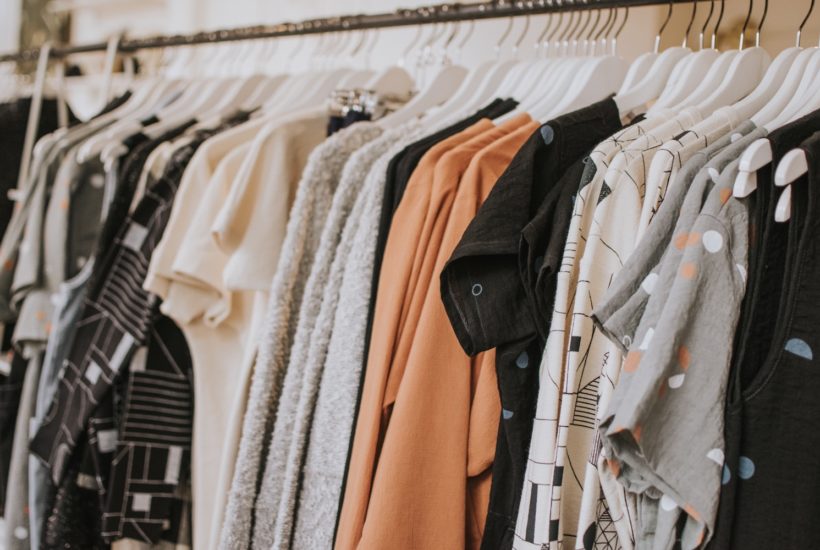
The pandemic has made an impact in all spheres of our lives, and the fashion industry is no exception. COVID-19 forces brands to apply and experiment with immersion technology to provide customers with something at least remotely similar to their favorite physical shopping.
Scheduling has conducted industry research and wants to share the latest data with you. We have used the safest and most advanced online research methods. But during the period of relaxing quarantine measures and full-fledged operation of stores and retail outlets, it is appropriate to conduct an audit of retail trade. You can find out how to do it retail audit services.
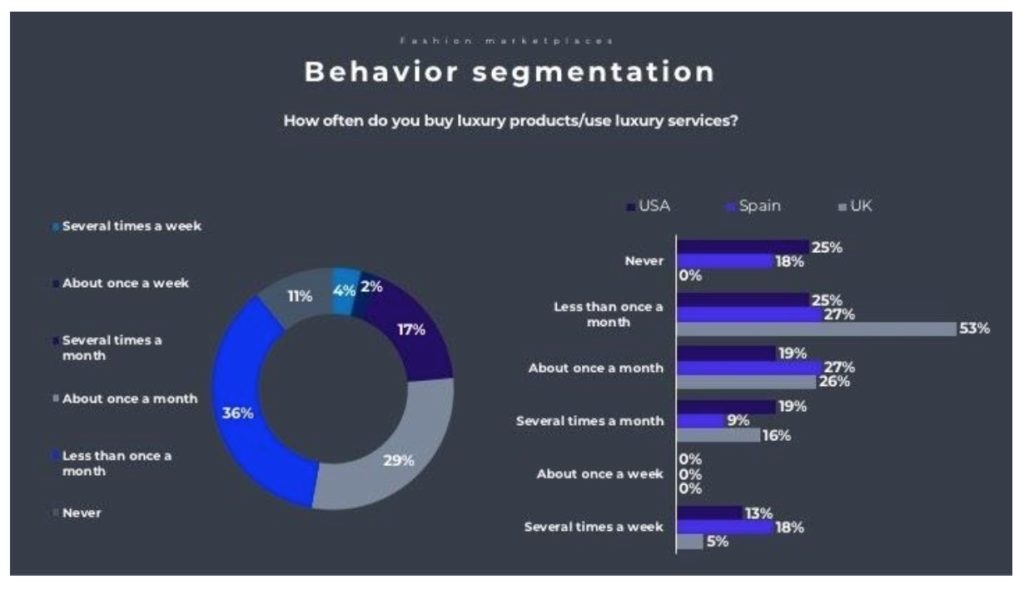
Fashion impact on different aspects of life
Fashion cannot be fully attributed to one particular category (social, economic, psychological), because it is a complex, ambiguous phenomenon. But the fact that it has a direct impact is obvious. This was agreed upon by our respondents from several countries.
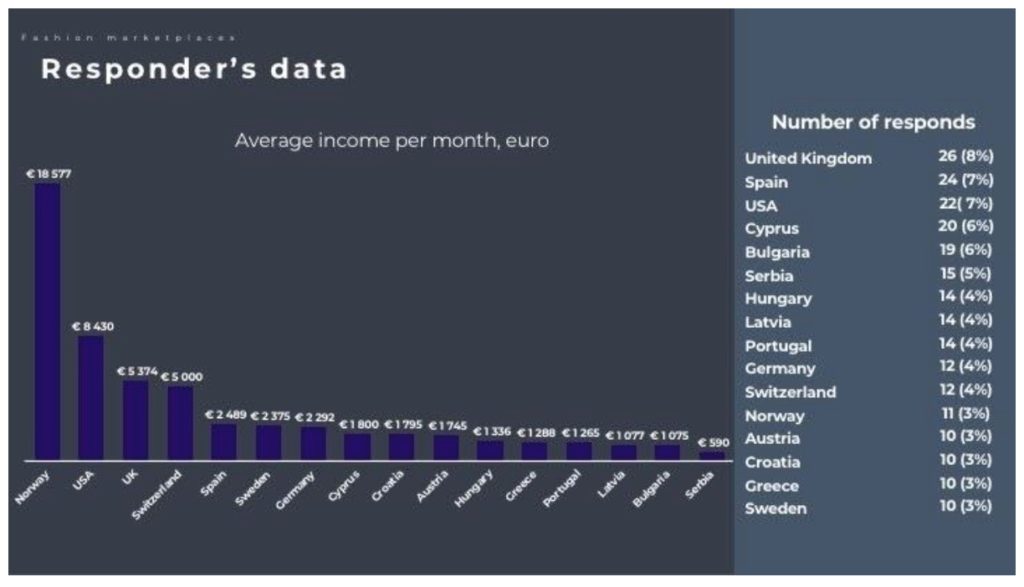
- 34% of respondents agree that fashion in general has an impact on their lives.
- 46% agree that it definitely affects different aspects of life.
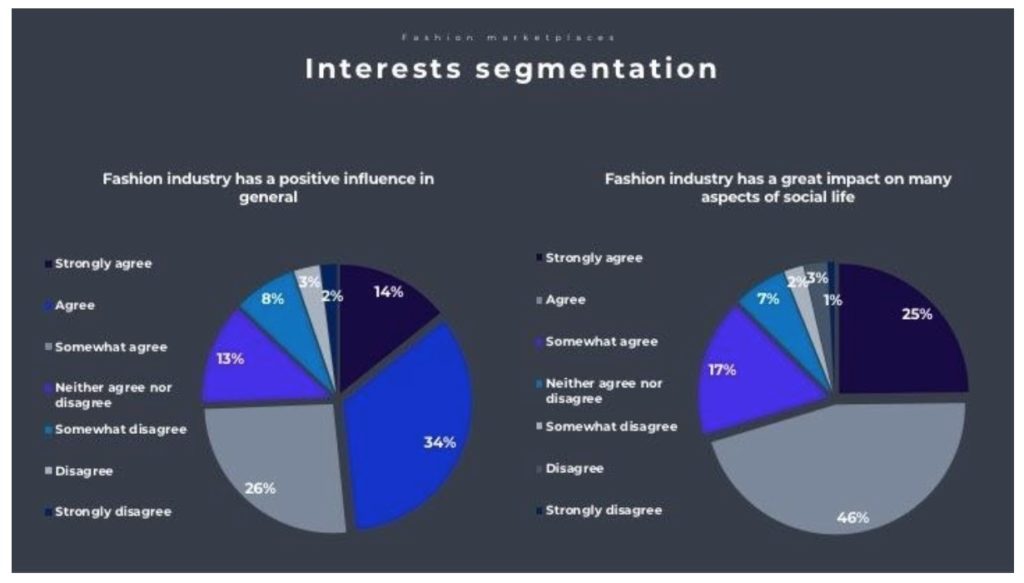
- 32% monitor industry trends constantly.
- Spanish people are the most interested in trends – 53%.
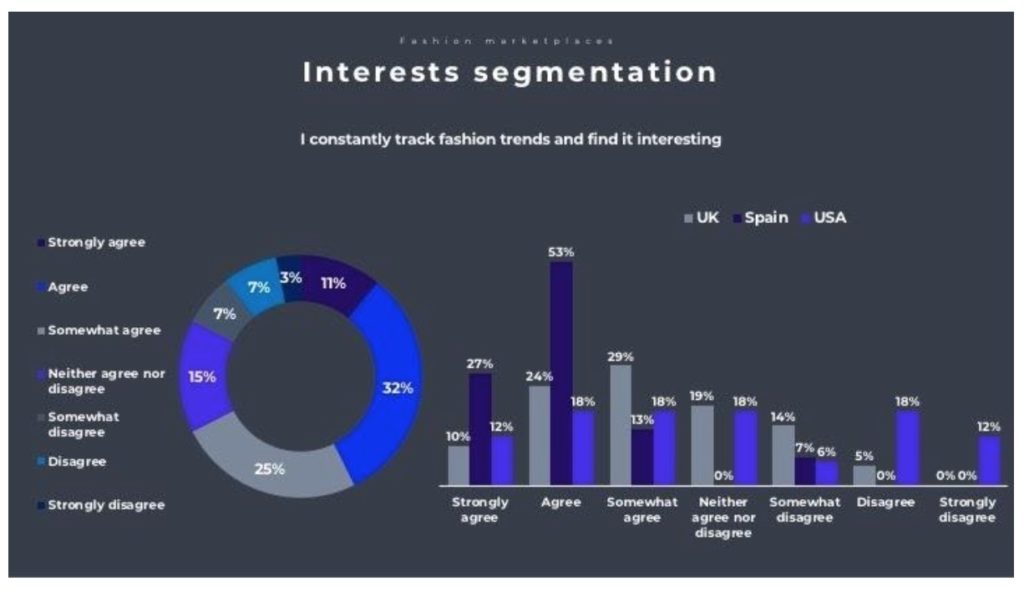
- Among different age categories, Generation X is in the first place when it comes to interest in trends (50%).
What are the main fashion trends in 2020?
Retail reduces collections and focuses on versatility
This year the spring-summer collections were almost forgotten, and the autumn-winter collections have already adapted to the new realities. Now the focus was on off-season items, and the range of clothes was reduced to create a more universal closet. Slowing down the fashionability of certain things will be a significant step taken by the fashion industry as a result of conscious consumption.
Mass production breaks down
The transition to sustainable fashion was a conscious choice for some, but for many was caused by logistical and economic difficulties due to quarantine measures. The key to success for brands in the future is flexibility and sustainability. This involuntary reset of the fashion industry may mark the return of traditional fashion values such as simplicity, beauty, and uniqueness. This also affects the luxury segment.
- 36% of our respondents said that they buy luxury brands less than once a month.
- 29% – afford luxury purchase once a month
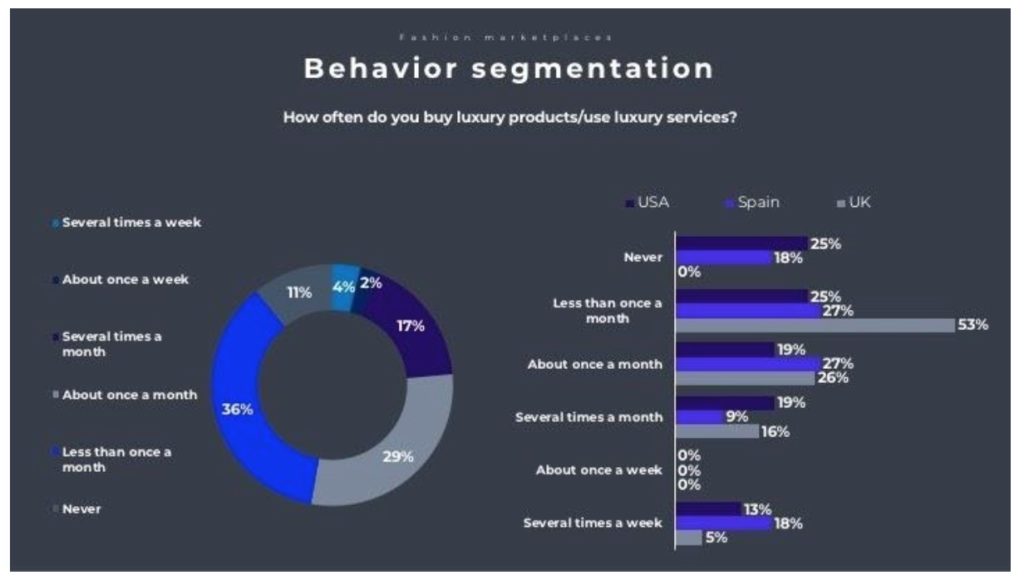
Comfort and conceptuality do not go out of fashion
The fashion for sports and everyday style entered our life long before COVID-19, and the pandemic only strengthened this trend. And it is not necessarily a branded product. As the results showed, 67% choose clothes of different manufacturers, both well-known brands, and no-name brands. The main thing is to make it comfortable.
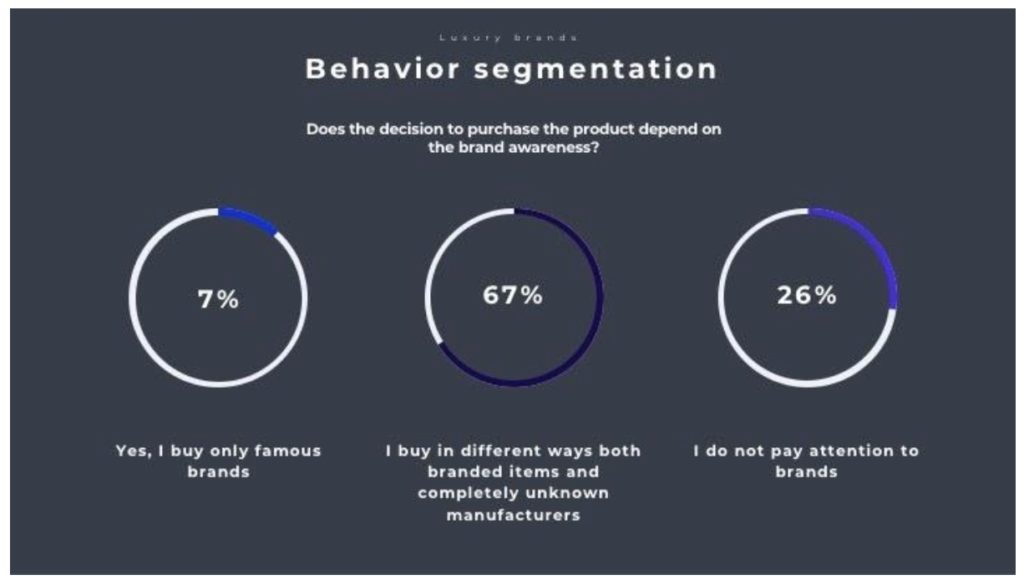
The future of the fashion industry will be determined by safety and health
Users are looking for ways to protect their health and their loved ones. Protective masks have become this year’s must-have accessory, and more closet details are expected in the future aimed at sustainable consumption, ethics, and environmental friendliness.
Manufacturers are increasingly thinking about moving to online. Gucci has abandoned the seasonal system and participation in fashion weeks. The Saint Laurent house has announced that it will miss the September week in Paris. And London Fashion Week completely goes online and refuses to divide it into men’s and women’s fashion (going back to the previous trend).
How to resist the virus and the crisis
According to our data, most people still prefer to go to boutiques and choose their own clothes. 78% prefer offline shopping as most of them argue this due to the ability to try on the product.
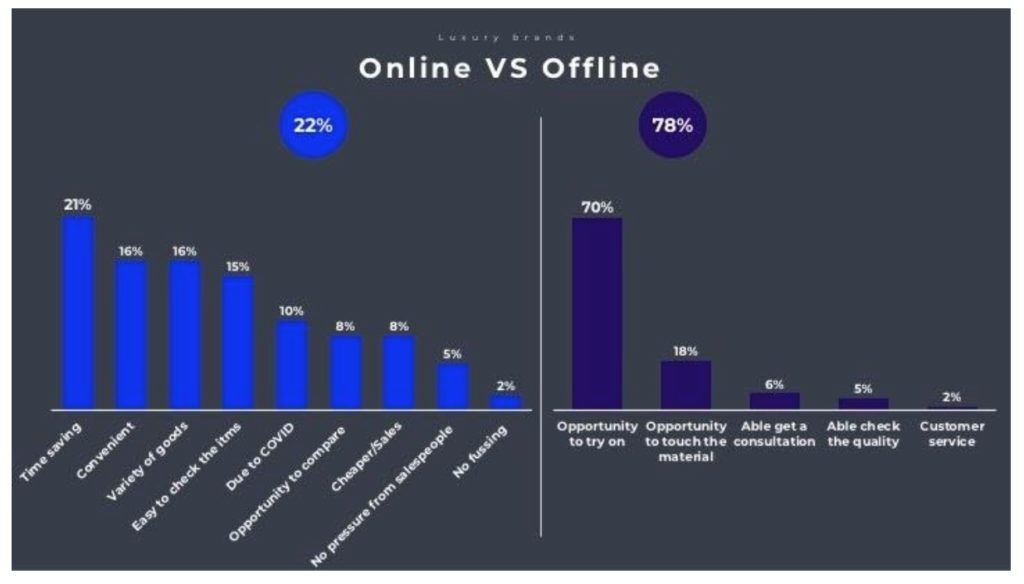
But if even the most conservative manufacturers have switched to online mode, it is obvious that brands need to look for opportunities for digitalization of their business.
If people vote for fitting rooms, give them the opportunity to try on the goods without leaving home. Show how a suit will sit on a particular client using an application that works with basic data: parameters and guidelines.
21% of respondents when choosing online shopping talk about saving time. Give them this opportunity as something that will make their purchase enjoyable not only because of the quality of the product but also because of the service. After all, there are no queues online, no need to review unnecessary models. In just a couple of clicks you can select the necessary item and without too much effort to learn about the range of size and color.
Our real-world is merging more and more with the digital one every year, and the difference will be difficult to distinguish soon. And to keep up with it, we all need to regroup – the pandemic has clearly shown it. Brand-manufacturers need to integrate into this process on time. After all, the opportunities for this have already been created!
—
(Featured image by Lauren Fleischmann via Unsplash)
DISCLAIMER: This article was written by a third party contributor and does not reflect the opinion of Born2Invest, its management, staff or its associates. Please review our disclaimer for more information.
This article may include forward-looking statements. These forward-looking statements generally are identified by the words “believe,” “project,” “estimate,” “become,” “plan,” “will,” and similar expressions. These forward-looking statements involve known and unknown risks as well as uncertainties, including those discussed in the following cautionary statements and elsewhere in this article and on this site. Although the Company may believe that its expectations are based on reasonable assumptions, the actual results that the Company may achieve may differ materially from any forward-looking statements, which reflect the opinions of the management of the Company only as of the date hereof. Additionally, please make sure to read these important disclosures.

-

 Business2 weeks ago
Business2 weeks agoDow Jones Nears New High as Historic Signals Flash Caution
-

 Cannabis21 hours ago
Cannabis21 hours agoSwitzerland Advances Cannabis Legalization with Public Health Focus
-

 Crypto1 week ago
Crypto1 week agoBitcoin Surges Toward $110K Amid Trade News and Solana ETF Boost
-

 Fintech4 days ago
Fintech4 days agoRipple and Mercado Bitcoin Expand RWA Tokenization on XRPL
























